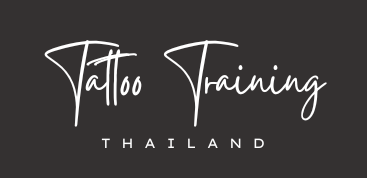
05 Nov Importance of Certification in the field of Tattoo
Introduction
Tattoos have evolved from a cultural and symbolic practice to a mainstream art form, gaining immense popularity over the years. As the demand for tattoo services continues to grow, the importance of certification in the field of tattoo artistry cannot be overstated. In this SEO-optimized article, we will delve into the significance of certification for both tattoo artists and clients, exploring the benefits it offers, the process of certification, and the impact it has on the tattoo industry.

I. Why Certification Matters
- Professionalism and Trust
Certification in tattoo artistry demonstrates a commitment to professionalism. Clients are more likely to trust an artist who has undergone formal training and holds a recognized certification. This trust can lead to repeat business and positive word-of-mouth recommendations.
- Health and Safety
Tattooing involves the use of needles and ink, which carry inherent risks. Certified tattoo artists are trained in hygiene and safety procedures, reducing the risk of infections and complications. Clients can have peace of mind knowing that certified artists adhere to strict safety protocols.
- Skill and Artistry
Certification is a testament to an artist’s skill and dedication to their craft. It ensures that artists have a strong foundation in the art and techniques of tattooing, allowing them to create high-quality and aesthetically pleasing tattoos.
II. The Certification Process
- Training and Education
To become a certified tattoo artist, one must undergo formal training. This typically includes courses in tattoo theory, artistry, anatomy, and hygiene. Training programs vary in length and depth, but they all aim to equip aspiring artists with the necessary knowledge and skills.
- Apprenticeship
Many certification programs require aspiring artists to complete an apprenticeship under the guidance of an experienced tattoo artist. This hands-on experience is invaluable for learning the practical aspects of tattooing, from using equipment to interacting with clients.
- Examination and Assessment
Certification is not granted without a rigorous evaluation of an artist’s knowledge and skills. This may involve written exams, practical assessments, and a portfolio review. Only those who meet the established standards are granted certification.
III. Benefits of Certification for Tattoo Artists
- Career Advancement
Certified tattoo artists have a competitive edge in the industry. They are more likely to be hired by reputable tattoo shops and studios, leading to better job opportunities and higher earning potential.
- Credibility and Recognition
Certification sets an artist apart from the competition. It establishes their credibility and can lead to recognition within the tattoo community and among clients.
- Personal Growth
The process of certification challenges artists to continually improve and refine their skills. This dedication to growth can lead to personal satisfaction and a greater sense of accomplishment in their work.
IV. Benefits of Certification for Clients
- Quality Assurance
Certified tattoo artists are more likely to produce high-quality tattoos. Clients can expect professionalism, cleanliness, and adherence to best practices, resulting in a tattoo they can be proud of.
- Health and Safety
Certified artists prioritize the health and safety of their clients. They follow strict sanitation protocols, use sterile equipment, and maintain a clean work environment, reducing the risk of infections and complications.
- Peace of Mind
Clients can rest assured knowing that their tattoo artist has met industry standards. Certification gives them peace of mind and confidence in the artist’s abilities, leading to a more positive tattoo experience.
V. The Impact on the Tattoo Industry
- Raising Industry Standards
Certification programs help raise the overall standards in the tattoo industry. As more artists become certified, there is greater emphasis on professionalism, hygiene, and skill, which benefits both artists and clients.
- Regulation and Recognition
Certification can lead to increased recognition and regulation of the tattoo industry. This may involve government agencies or professional organizations acknowledging certified artists and enforcing industry standards.
- Fostering Innovation
Certified artists are more likely to experiment with new techniques and designs, pushing the boundaries of tattoo artistry. This continuous innovation keeps the industry dynamic and exciting.
Conclusion
Certification in the field of tattoo artistry is more than just a piece of paper; it represents a commitment to professionalism, safety, and quality. For tattoo artists, it offers opportunities for career advancement and personal growth. For clients, it ensures a positive and safe tattoo experience. As the tattoo industry continues to thrive, the importance of certification cannot be overlooked. It not only benefits individuals but also elevates the industry as a whole, fostering a culture of excellence and innovation in the world of tattoo artistry.



No Comments